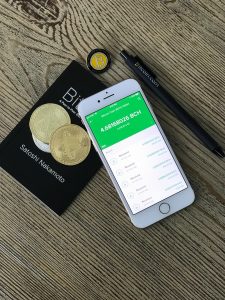Learn to Trade Forex: A Beginner’s Guide to Currency Trading
Forex, also known as foreign exchange, is a decentralized global market where all the world’s currencies are traded. It is the largest and most liquid financial market in the world, with an average daily trading volume of over $6 trillion. Forex trading provides individuals with the opportunity to make a profit by speculating on the fluctuations in currency exchange rates.
If you are new to forex trading, this beginner’s guide will provide you with the essential knowledge and tools to get started.
Understanding the Basics
Before diving into the world of forex trading, it is important to understand the basic concepts and terminology involved.
Currency Pairs: In forex trading, currencies are always traded in pairs. The first currency in the pair is called the base currency, while the second currency is the quote currency. For example, in the EUR/USD currency pair, the euro is the base currency, and the US dollar is the quote currency.
Bid and Ask Price: The bid price represents the highest price at which a buyer is willing to pay for a currency, while the ask price is the lowest price at which a seller is willing to sell. The difference between the bid and ask price is known as the spread.
Pips: A pip is the smallest unit of measurement in forex trading and represents a change in the exchange rate. Most currency pairs are quoted to four decimal places, so a one-pip movement would be equivalent to 0.0001.
Leverage and Margin: Leverage allows traders to control larger positions in the market with a smaller amount of capital. It is expressed as a ratio, such as 1:100, which means that for every $1 of the trader’s equity, they can control $100 in the market. Margin is the amount of money that traders need to deposit in their trading account to open and maintain a trading position.
Choosing a Forex Broker
To start trading forex, you will need to choose a reputable forex broker. Consider the following factors when selecting a broker:
Regulation: Ensure that the broker is regulated by a recognized financial authority. This provides protection for your funds and ensures fair trading practices.
Trading Platform: The trading platform is the software that you will use to execute trades. It should be user-friendly, stable, and offer a wide range of tools and indicators for analysis.
Spreads and Commissions: Compare the spreads and commissions charged by different brokers. Lower spreads can significantly impact your profitability.
Customer Support: Look for a broker that offers responsive and reliable customer support, preferably with multiple channels of communication.
Develop a Trading Plan
Before entering the forex market, it is important to develop a trading plan. A trading plan outlines your trading goals, risk tolerance, and the strategies you will use to enter and exit trades. It helps to keep emotions in check and ensures disciplined trading.
Technical and Fundamental Analysis
Technical analysis involves studying historical price data and using various indicators and chart patterns to predict future price movements. It helps traders identify trends, support and resistance levels, and potential entry and exit points.
Fundamental analysis, on the other hand, focuses on analyzing economic, social, and political factors that can impact currency prices. Traders look at economic indicators, such as GDP, inflation, and interest rates, as well as news events and geopolitical developments.
Risk Management
Risk management is a crucial aspect of forex trading. It involves implementing strategies to protect your capital and minimize losses. Some risk management techniques include setting stop-loss orders, using proper position sizing, and diversifying your trading portfolio.
Start with a Demo Account
Before risking real money, it is highly recommended to practice trading with a demo account. Most forex brokers offer demo accounts that simulate real market conditions using virtual funds. This allows you to test your trading strategies and gain experience without any financial risk.
Continued Learning and Improvement
Forex trading is a continuous learning process. Stay updated with market news, economic events, and new trading strategies. Attend webinars, read books, and follow experienced traders to expand your knowledge.
Conclusion
Forex trading can be an exciting and potentially profitable venture for beginners. By understanding the basics, choosing a reliable broker, developing a trading plan, and implementing proper risk management, you can embark on a successful trading journey. Remember, continuous learning and practice are key to becoming a skilled forex trader.






